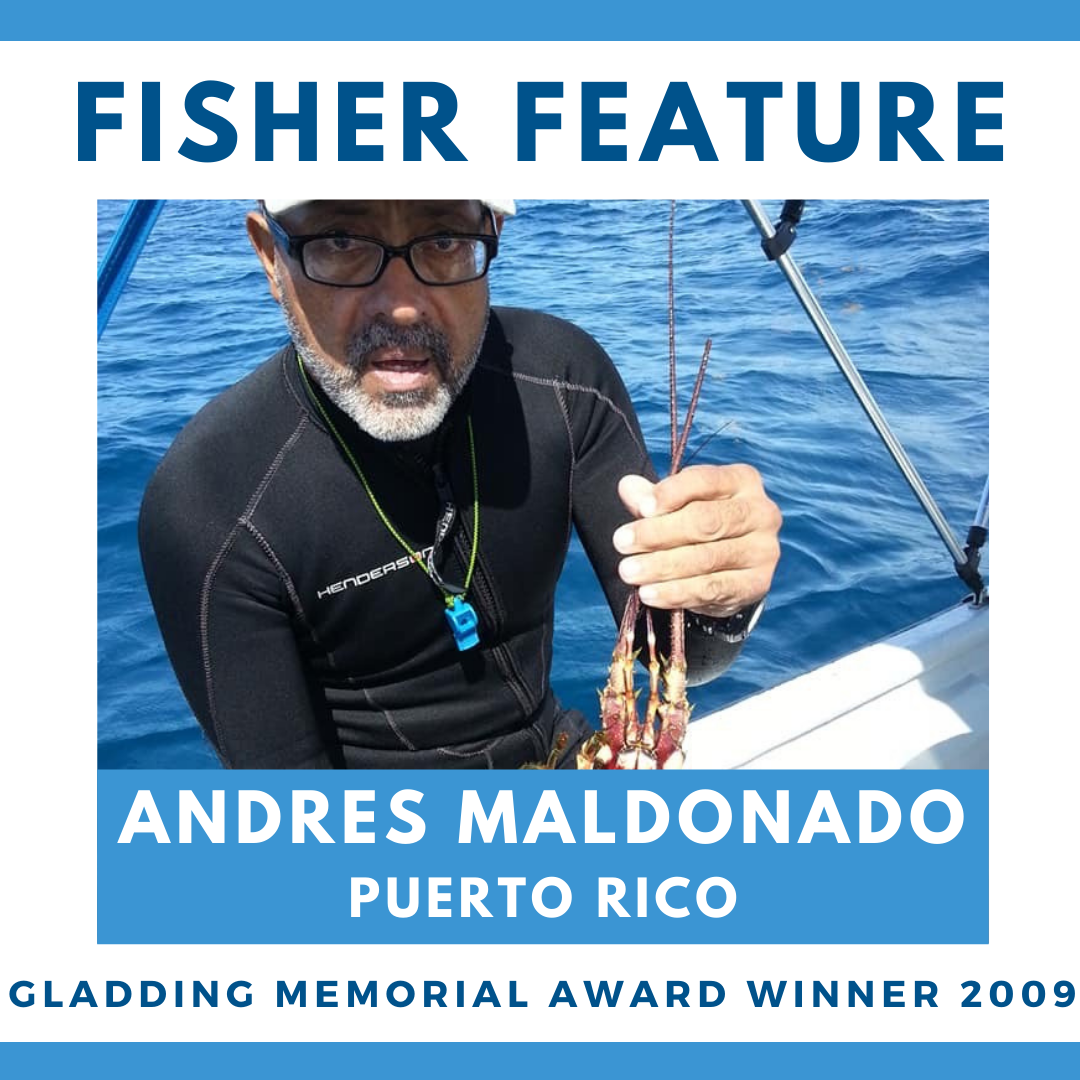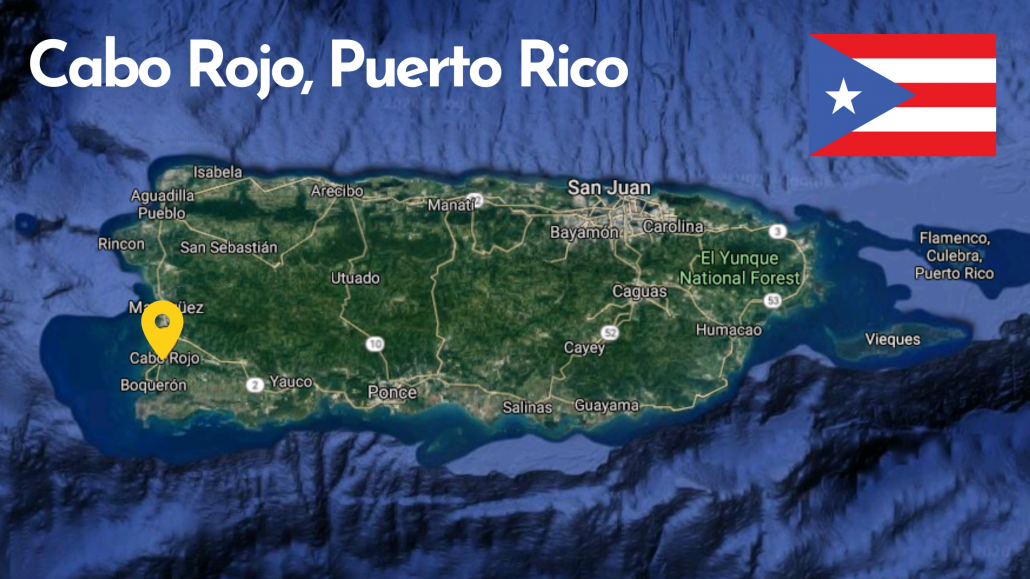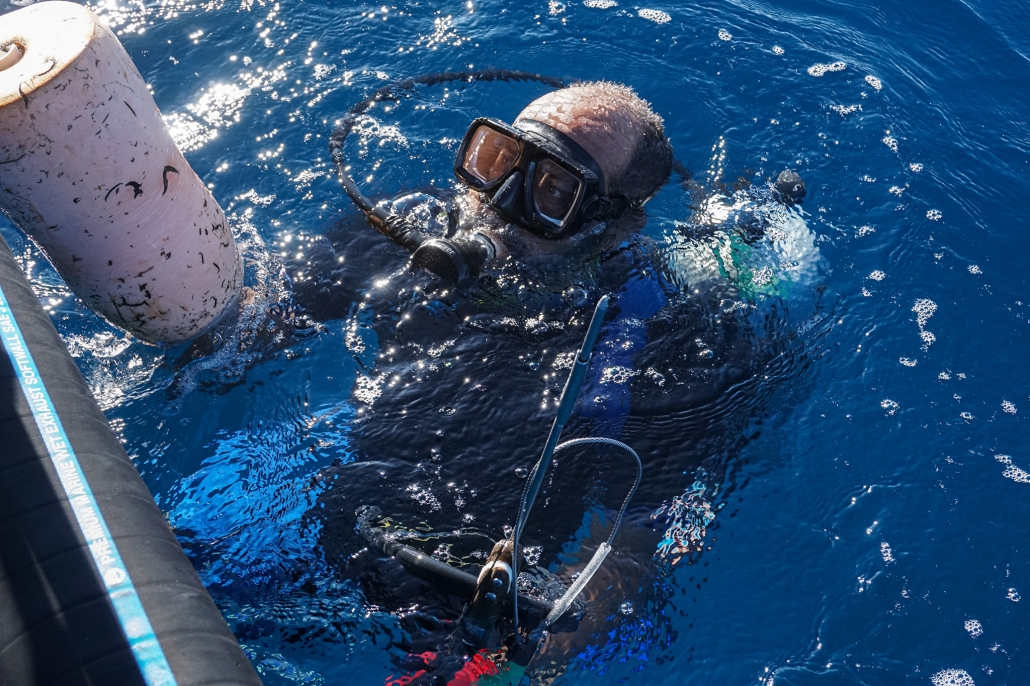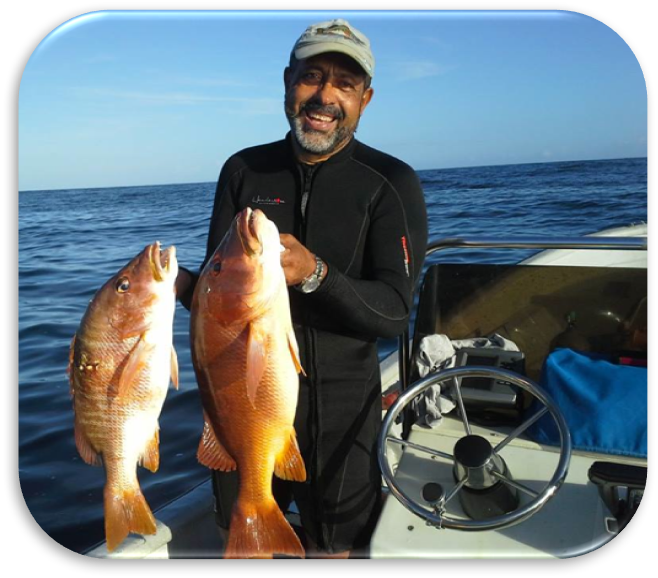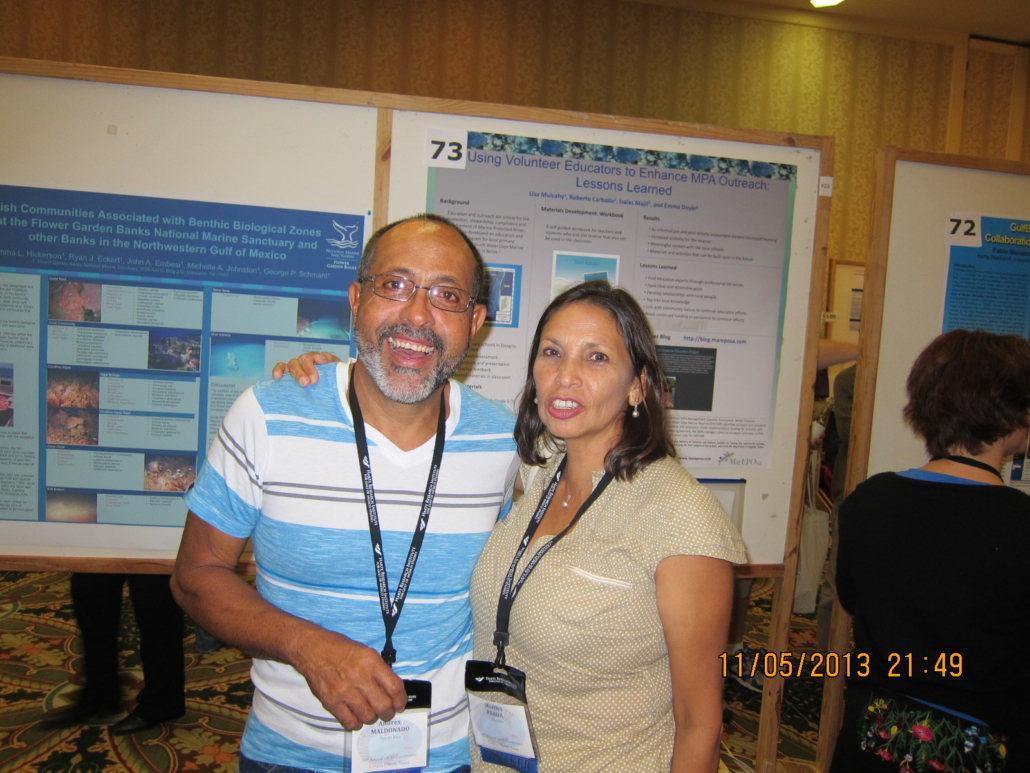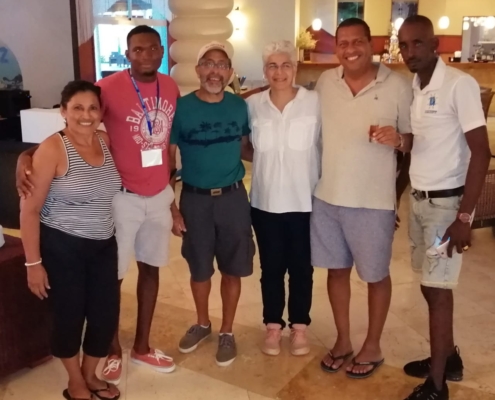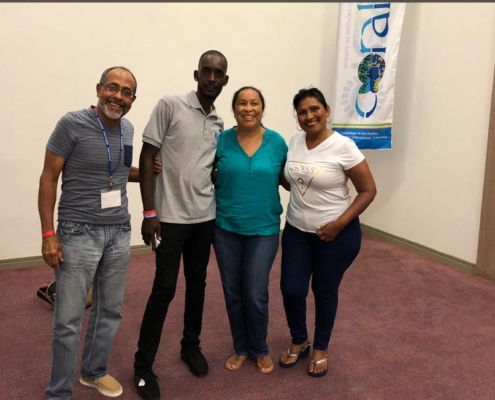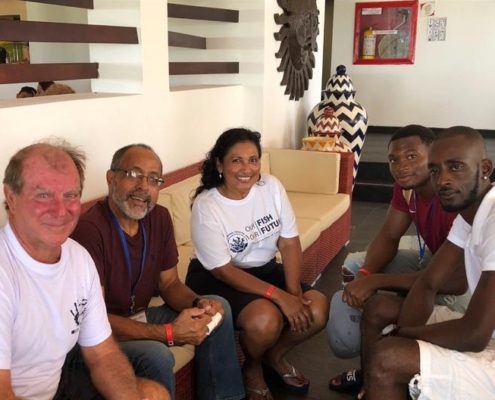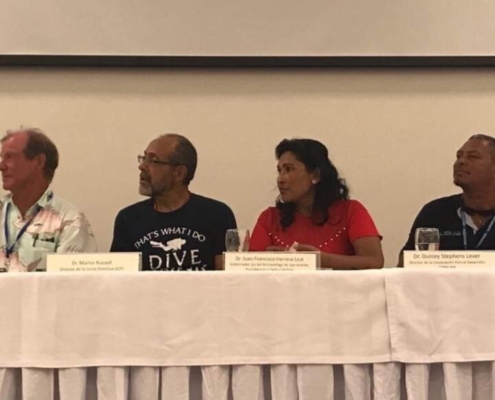Andres Maldonado from Cabo Rojo, Puerto Rico was awarded the Gladding Memorial Award in 2009, in recognition of his outstanding contributions to sustainable management of fisheries and marine resources in the Gulf and Caribbean Region.
Andy has always been drawn to the sea and it started early on, lured by the fear of the unknown that developed into a continuous curiosity of the marine creatures as well as the challenges of the underwater realm. This search for knowledge and adventure led him to explore different experiences in the fisheries of Puerto Rico. He started SCUBA diving in 1973 and in 1979, after a serious case of the bends, Andy switched to the deep water snapper and grouper fishery, which took him on multiple day trips to distant fishing banks. He did not adapt well to the long offshore trips and returned to the SCUBA diving fishery in his backyard, during which he raised a family and invested in the equipment to fill his own tanks and become certified as a master mixer of NITROX gas.
Contributing to conservation:
Since the early 1990’s Andy participated in the Caribbean Fishery Management Council (CFMC) processes to develop fishery management plans and provided data on lobster, conch and a variety of reef species. He also participated the local Fisheries Advisory Committees seeking to share knowledge for the better use of the fishery resources. Based on the observations of conch reproductive aggregations he proposed and achieved a change to the conch closed seasoning to cover the reproductive period. He has been active in communicating the changes he sees underwater to scientists and led efforts to change the perspective of local fishery participants, specifically to increase the knowledge and compliance with fisheries regulations. He has collaborated in research and outreach to highlight the need to protect Nassau grouper spawning aggregation sites in order to recover this endangered species. Pioneered the local Facebook group ‘Pescadores Comerciales y el Ambiente’ where members share news, opinions, observations and during emergencies at sea the page serves to share information with agencies and volunteers. Andy has starred in multiple documentary films, press articles, educational videos designed for local fishers (CFMC videos) and other features to highlight diving safety and avoiding accidents that require treatment at the hyperbaric chamber, environmental awareness, responsible fisheries and lionfish consumption.
Experience since winning the GMA?
The main benefit of the GMA experience has been to get to know other GMAs, fishers, scientists and NGOs that are also working to protect fishery resources and secure traditional fishing livelihoods. There are many individuals leading efforts to reach the same goals with very limited resources yet continue fighting for the benefit of other fisherfolk. Participating in the GCFI allows him to transmit information and receive feedback to improve his outlook and also to help others when possible. Meeting other fishers and scientists from the different regions has been an important platform to share ideas and receive support and learn about themes previously unknown to him and now he can more actively participate in cooperative research, despite all the challenges.
Outlook for the future of fisheries?
The outlook in Puerto Rico is bleak as the fisheries rules and regulations are not being implemented and the data collection needed to document the changes to the marine ecosystems are lacking. There is an urgent need to deal with the illegal fishing and lack of compliance during closed seasons or for prohibited species. Specifically, conch imports from other areas during the local closed season causes a great impediment for law enforcement as locally caught conch is still sold without consequences. A general lack of will by the government to solve these problems and lack of enforcement presence to protect the marine habitats and the fishery resources is putting fishers to the limit. After the impact of Hurricane María, an event that changed the submarine habitats significantly, we have observed how nature can recuperate and some species can return, however the spread of mortality due to the disease on many of the corals has created a serious impact that will undoubtedly have an effect on the future of small-scale fisheries.


